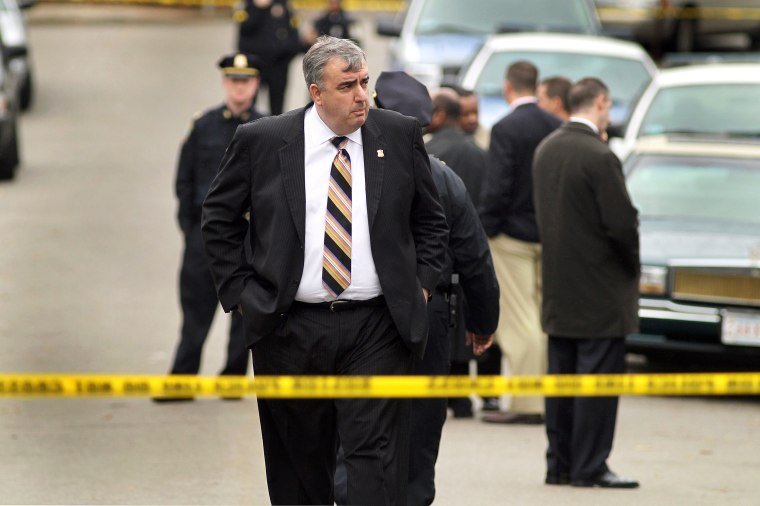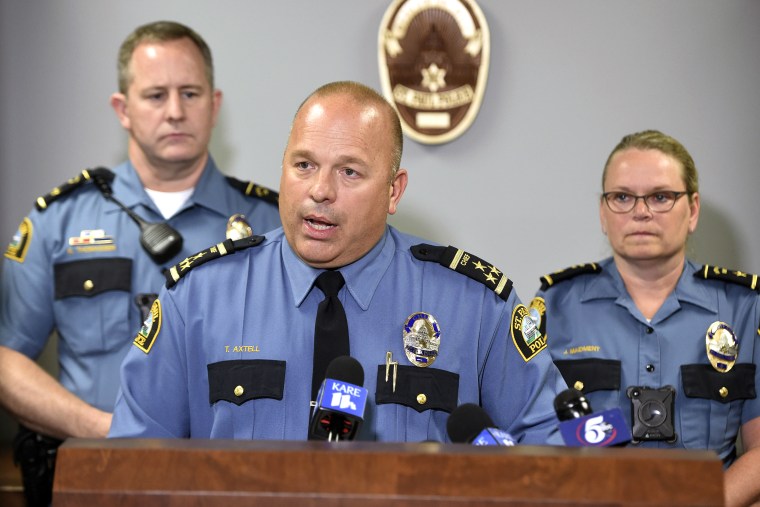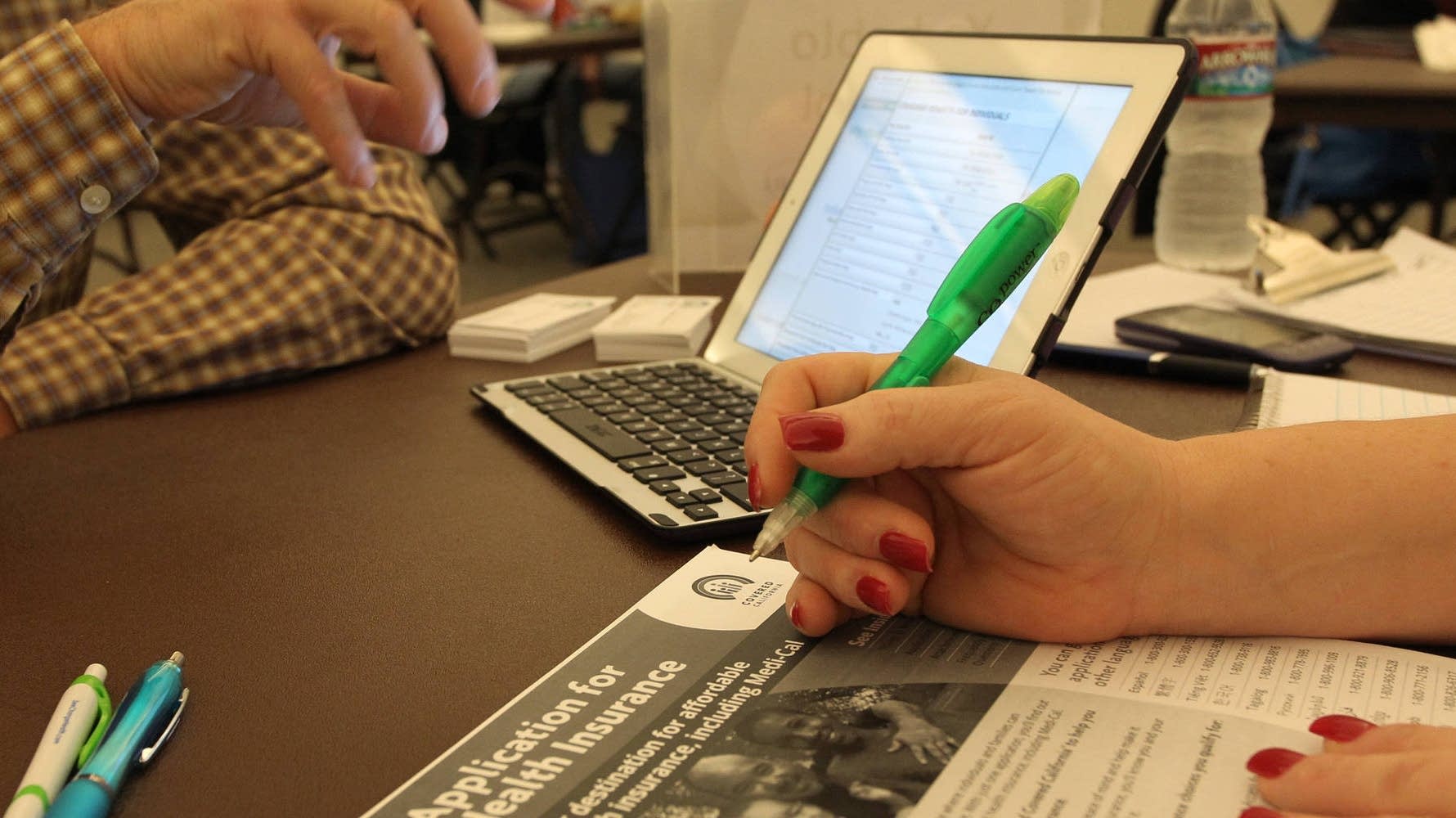Current and former police leaders, citing rising threats of violence, are expressing alarm over a“disturbing rise in rhetoric” in the U.S. and calling for the criminal prosecution of “individuals, including elected and public figures, who incite violence or contribute to a climate that fosters targeted attacks.”
In an unusual step, the International Association of Chiefs of Police, one of the country’s largest police associations, recently passed a resolution condemning the “incitement of violence.”
“There has been a disturbing rise in rhetoric from political and community leaders that has contributed to acts of violence against law enforcement officers, elected officials, and members of the public,” the association states in the document. “The IACP urges political and community leaders to exercise restraint, responsibility, and thoughtfulness in their public statements, recognizing the influence their words have on public behavior and safety.”
Former police leaders expressed alarm in interviews, warning that the number of threats to the public, schools, political leaders and law enforcement was the highest they had seen in their careers.
“The level of vitriol is at a spot that I’ve never observed in my entire career,” former St. Paul, Minnesota Police Chief Todd Axtell told NBC News. “It’s having devastating impacts on community and police departments and law enforcement agencies throughout the country.”
Ed Davis, who served as Boston police commissioner during the Boston Marathon bombings, said the threat levels are unprecedented and law enforcement agencies lack the resources to both counter rising threats and conduct traditional policing.
“I talk to my colleagues around the country frequently, and we’re just astounded … that we find ourselves in this situation,” Davis said in an interview. “And everybody’s looking for guidance or leadership on this, and there just doesn’t seem to be any right now.”
Both men are members of IACP, a U.S.-based nonprofit organization of top police executives with more than 35,000 members in the U.S. and chapters in over 170 countries. In late August, the organization passed the resolution to draw public attention to the problem and highlight the dangers of incendiary rhetoric and individuals who might act on it.
“Society must recognize that there are individuals who are vulnerable, easily manipulated, and dangerously impressionable,” the group said in its resolution. “And that when public figures or other influential individuals spread hate, words have consequences, and in the wrong hands, they can become weapons.”
Call for prosecutions
The association also urged law enforcement officials to enforce existing laws to combat the problem. “The IACP calls for the enforcement of criminal sanctions against individuals, including elected and public figures, who incite violence or contribute to a climate that fosters targeted attacks.”
Legal experts say law enforcement agencies can charge individuals with violating laws that bar making specific violent threats against people, groups, or institutions, if certain criteria are met. Local prosecutors can use state laws banning terroristic threats and federal prosecutors can charge individuals with making interstate threats.
The group emphasized that they are not trying to restrict political speech in any way, noting that free speech is “a cornerstone of democratic society.”

One police leader, who spoke on condition of anonymity and is a member of the IACP, said, “I will tell you that we have more people dedicated to threat investigation and protected missions than any time in our 90-year history of this organization.”
A second police commander agreed. “The drumbeat has picked up,” they said.
The two said that threats of violence have spread from being primarily received by elected officials and political figures to a broader group including CEOs, health care providers, housing administrators, educators and, in particular, judges.
These threats are on top of the day-to-day policing work that these agencies must contend with, along with more traditional threats such as mass shootings at schools and threats from terrorist organizations, they said.
One police executive, who spoke on condition of anonymity, said he had a simple message for politicians: Their words have impact. “This isn’t a political matter; this is, ‘Stop the speech that’s causing people to radicalize and take action,’” the police executive said. “‘Because, whether you believe it or not, they believe you’re talking to them.’”
Concerns on the ground
NBC News also spoke to two leaders of statewide police agencies in noncoastal states with hundreds of staff and large Democratic and Republican populations. The two leaders, who spoke on condition of anonymity, said they have personally investigated active-shooter incidents and dealt with rising threats to politicians and public employees.
They were granted anonymity so they could freely discuss the challenges they face as law enforcement officials and their recommendations, given an environment where people who publicly criticize threats of violence are then routinely threatened themselves. They said norms regarding free speech and threats of violence had changed.
“It was almost like, before, people knew where the line was to avoid saying the things that are illegal,” said one police commander, referring to the past. “And now it doesn’t seem that anybody really cares about what they say.”

One of the statewide leaders said he has over 100 investigators in his state focused exclusively on school threats to educators and possible mass shooters at schools.
Many of the cases, police say, have a significant mental health component.
“I can’t think of the last one that we charged that didn’t go down a mental health competency road,” one of the officials said.
The variety of threats police are trying to counter is widening, officials said, as crime continues to rise. One official described the duties he faced on the anniversary of the 9/11 attacks.
“What’s different about today is, in one day we went to an active shooter, I’m protecting dignitaries that are going to high-profile events because it was 9/11,” he said. “I’m in pursuit of a stolen car with shots fired, and that’s all within 15 minutes of each other.”
The official said that investigating threatening speech online, for example, pulls police away from public safety duties. “We’re now investing people, resources and time to go down and try to find what, in many times, ends up being a keyboard warrior.”
‘Vacuum of leadership’
One of the law enforcement officials in active duty said they were sounding an alarm because other community leaders have not spoken up enough about the rising threat.
“I think this is a vacuum of leadership,” he said, adding: “Policing has the opportunity, if not the responsibility, to stand up.”
He added that their goal was to work with leaders from other parts of society and communities. “We want to come to the table and be a part of facilitating that more thoughtful discourse in and teach people, or at least show people, that you can actually disagree and argue with each other without weapons.”
“People are mad,” the official added, “and there’s not a voice to quiet it right now.”
“It’s not just about policy, it’s about tone,” said Axtell, the former St. Paul police chief. “And if we want to turn down the temperature in our communities, leaders at every level must take responsibility for the words they use and the impact those words have.”
Davis, the former Boston police commissioner, called for restraint and accountability from public officials.
“I think the challenge is for public officials across the nation not to get caught up in the back-and-forth and be the adult in the room when these things start to happen,” Davis said. “I think public officials should be stressing that almost every person who does something outrageous like this is held accountable for it.”
Source link


